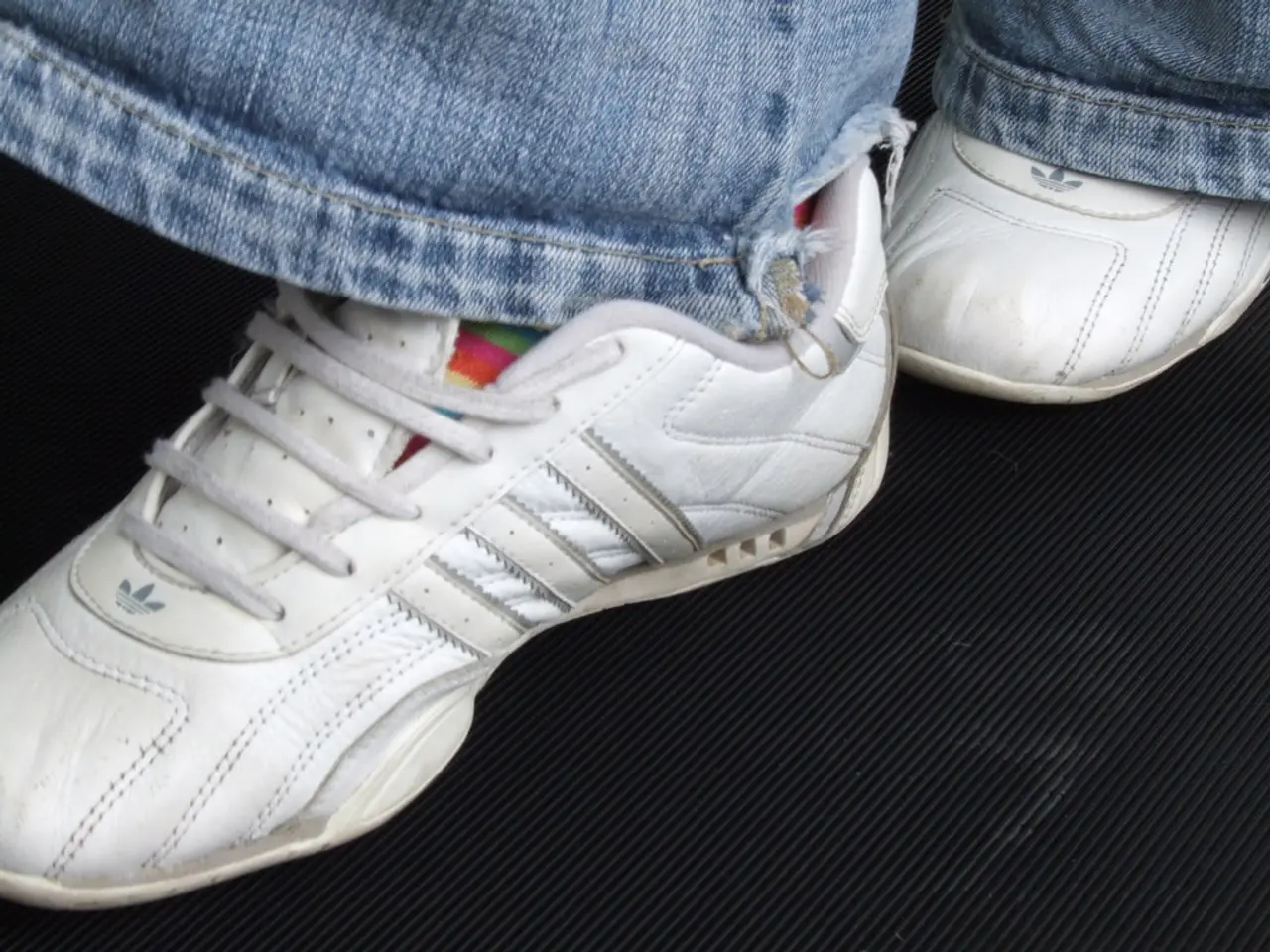Reasons behind puffed ankles and strategies for reducing them
Ankle swelling, or edema, can occur due to a variety of reasons beyond common injuries and inflammation. This article explores the lesser-known causes, symptoms, and potential remedies for ankle swelling.
One of the primary causes of ankle swelling is cardiovascular, renal, and liver diseases. For instance, heart failure can impair the heart's ability to pump blood effectively, causing blood to back up into the veins, leading to swelling. Similarly, kidney disease and liver disease can reduce the body's ability to filter excess fluid, resulting in accumulation in tissues.
Venous and lymphatic system problems are another significant cause of ankle swelling. Conditions such as varicose veins and lymphedema can disrupt the normal flow of blood and lymph, leading to fluid pooling in the legs and feet.
Heat exposure can also cause ankle swelling, known as heat edema. As blood vessels dilate to cool the body, fluid leaks into tissues, particularly in the lower legs. Prolonged standing or sitting can worsen this swelling.
Hormonal or lifestyle factors also play a role in ankle swelling. High salt intake and hormonal changes, such as those experienced during puberty, menopause, or pregnancy, can disrupt fluid regulation, leading to fluid retention and swelling.
Pregnancy can cause edema due to the body producing more blood and bodily fluids to support the developing fetus. However, if a woman experiences swollen ankles accompanied by heat or discoloration, worsening swelling, a fever, sudden increase in swelling during pregnancy, a history of heart, kidney, or liver disease, she should contact a doctor.
In addition to these causes, conditions such as preeclampsia, diabetes, hypothyroidism, rheumatoid arthritis, cellulitis, bursitis, deep vein thrombosis (DVT), chronic venous insufficiency (CVI), and certain medications can also cause ankle swelling.
For those experiencing ankle swelling, home remedies can provide relief. Exercising the legs, reducing salt intake, wearing compression stockings or socks, wearing loose pants, and losing weight if needed can all help reduce ankle swelling.
If symptoms persist or worsen, it is essential to seek medical advice. A healthcare professional can provide a proper diagnosis and recommend appropriate treatment options.
- Type 2 diabetes, a chronic medical-condition, can cause ankle swelling due to high blood sugar levels contributing to fluid build-up.
- Cellulitis, a skin-condition characterized by swelling, redness, and heat, can also lead to ankle swelling when it affects the lower limbs.
- Thrombosis, particularly deep vein thrombosis (DVT), can cause ankle swelling as a result of blood clots forming in the leg veins.
- Pregnancy can be a time of various health-and-wellness changes, including an increased risk of ankle swelling, especially in the later stages.
- Depression, a neurological-disorder, sometimes leads to weight-management issues and sedentary lifestyle, both of which can contribute to ankle swelling.
- Pfizer, a well-known pharmaceutical company, has developed many therapies-and-treatments for various chronic-diseases, including some that manage the symptoms of ankle swelling.
- Science has made predictive measures possible for those at risk of developing chronic-kidney-disease, a condition that can lead to ankle swelling.
- COPD, or chronic obstructive pulmonary disease, a respiratory-condition, can cause ankle swelling due to fluid retention related to breathing difficulties.
- Digestive-health plays a role in overall health, and digestive problems, such as those associated with cance or autoimmune-disorders, can indirectly lead to ankle swelling.
- Eye-health and hearing can indirectly influence ankle swelling, as certain medical-conditions affecting these areas may arise from similar causes, such as poor circulation or inflammation.
- Fitness-and-exercise, essential for maintaining general health and wellness, can help manage and reduce the risk of ankle swelling by maintaining optimal body weight and circulation.
- Medically, ankle swelling can be an early sign of rheumatoid-arthritis, an autoimmune-disorder affecting the joints and connective tissue.
- skin-care, an important aspect of overall health, can contribute to ankle swelling if improper, as certain skin-conditions can lead to inflammation and fluid retention.
- Fatigue resulting from ankle swelling can further complicate conditions like depression, creating a vicious cycle that negatively impacts mental and physical health.
- Medicare, a government-funded program, provides coverage for various therapies and treatments for chronic-diseases, including those that can cause ankle swelling.
- Women's health encompasses various aspects, including weight-management and hormonal changes, both of which can contribute to ankle swelling in some cases.
- Men's health, focusing on preventive care, fitness-and-exercise, and regular check-ups, can help maintain overall health and minimize the risk of developing medical-conditions like those causing ankle swelling.




